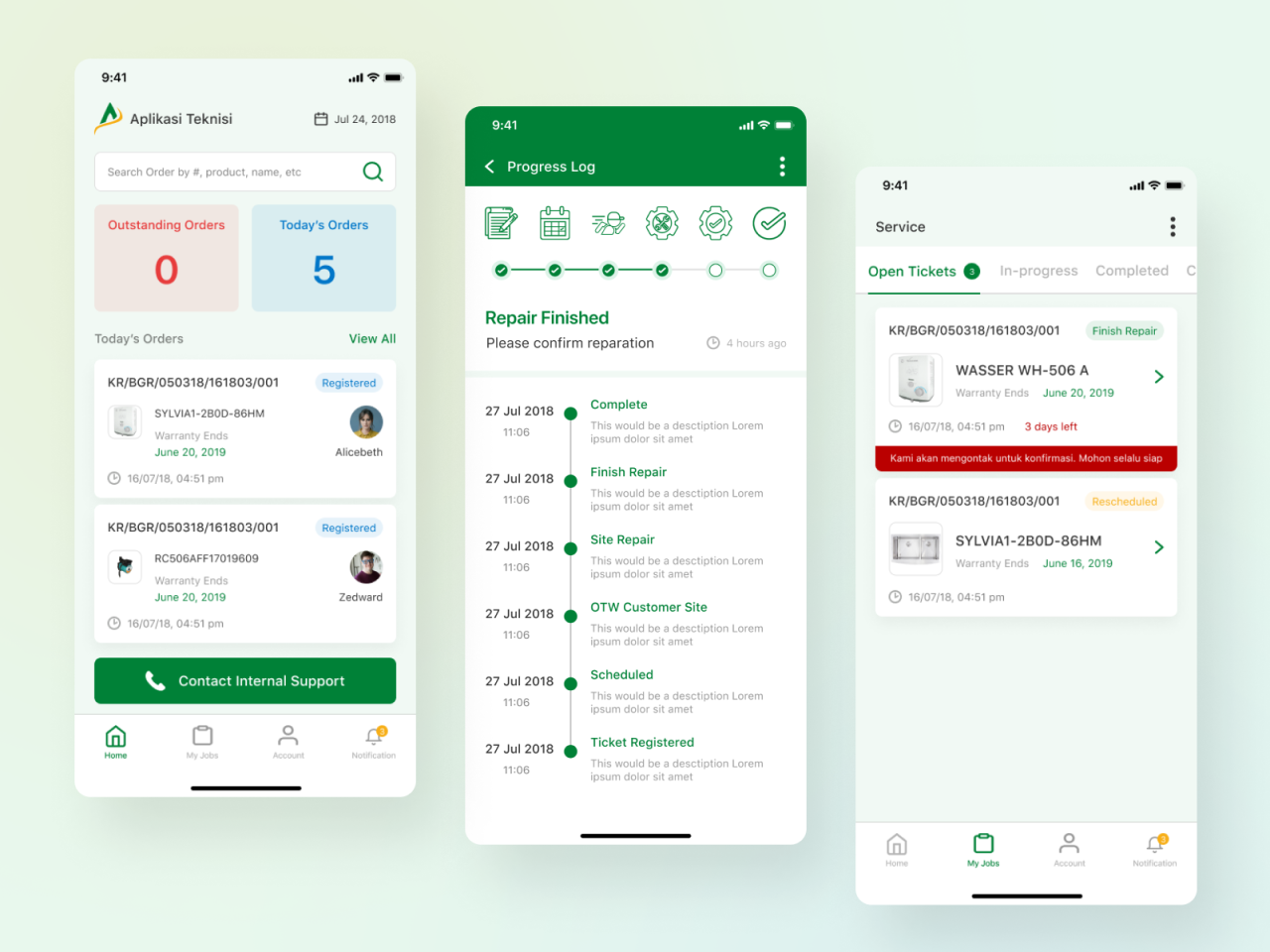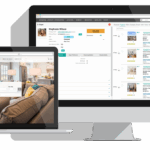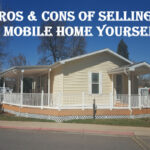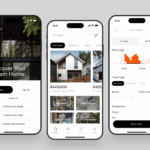What software helps manage mobile home communities is more than just a question; it’s an inquiry into the heart of efficient living spaces. The management of these unique communities demands an approach that combines organization and empathy, where software plays a pivotal role in fostering a harmonious atmosphere between residents and managers. With tools designed specifically for this purpose, the complex dance of community management can transform into a seamless process, allowing for proactive communication and swift resolutions.
In today’s fast-paced world, the importance of managing mobile home communities effectively cannot be overstated. Specialized management software offers a suite of features that streamline operations, from tenant communications to maintenance requests, surpassing the outdated methods of manual management. By embracing technology, community managers can enhance their ability to maintain a welcoming and well-organized environment.
Overview of Mobile Home Community Management Software
Managing a mobile home community effectively is crucial for maintaining high occupancy rates, fostering resident satisfaction, and ensuring the overall longevity of the property. With the right management software, community managers can streamline operations, improve communication, and handle various tasks more efficiently.Management software for mobile home communities typically includes a robust set of features designed to simplify various aspects of community operations.
Common functionalities include tenant tracking, lease management, maintenance requests, accounting tools, and communication portals for residents. This software not only organizes important documents but also provides reminders for lease renewals, payment deadlines, and maintenance schedules.
Key Features of Management Software
Understanding the essential features of mobile home community management software allows for better decision-making when selecting the right tool for your community. Below are some key features to consider:
- Tenant Management: Efficient tracking of tenant information such as contact details, lease agreements, and payment histories.
- Accounting Tools: Built-in financial management, including rent collection, expense tracking, and financial reporting.
- Maintenance Management: A system for residents to submit maintenance requests and for managers to track and prioritize these tasks.
- Communication Portals: Platforms for announcements, newsletters, and direct messaging between management and residents.
- Reporting and Analytics: Tools that provide insights into occupancy rates, rent collection efficiency, and maintenance costs.
Benefits of Specialized Software
Opting for specialized management software over traditional manual methods offers several advantages that can enhance the management of mobile home communities. Here are some of the key benefits:
- Time Efficiency: Automating routine tasks minimizes manual work, allowing managers to focus on more strategic responsibilities.
- Improved Accuracy: Software reduces human error in calculations, documentation, and record-keeping, ensuring that all information is accurate and up-to-date.
- Enhanced Communication: With dedicated communication tools, residents feel more connected to management, fostering a positive community atmosphere.
- Data-Driven Decisions: Access to comprehensive reports enables managers to make informed decisions that can lead to better financial performance.
- Scalability: As the community grows, management software can easily adapt to accommodate more tenants and complex operations without a hitch.
Effective management through specialized software leads to happier residents and a thriving community.
Types of Software for Mobile Home Management: What Software Helps Manage Mobile Home Communities

Managing a mobile home community effectively requires specialized software tailored to unique needs. Various types of software available in the market cater to different aspects of property management, from tenant relations to financial accounting. Understanding these types can streamline operations and enhance the living experience of residents.When diving into mobile home management software, it’s essential to differentiate between property management systems and accounting software.
Property management systems (PMS) cover a broad range of functionalities, including tenant screening, lease management, and maintenance tracking. On the other hand, accounting software is primarily focused on financial transactions, such as rent collection, budgeting, and financial reporting. Both types of software serve crucial roles in ensuring efficient community management.
Property Management Systems and Accounting Software
Property management systems offer a comprehensive suite of tools for managing various aspects of mobile home communities. These systems often include features that improve tenant communication and streamline operations. Here are key functions of property management systems:
- Tenant Management: Keep track of tenant applications, lease agreements, and renewals.
- Maintenance Tracking: Simplify the process of reporting and addressing maintenance issues.
- Online Payments: Facilitate easy rent collection through secure online portals.
In contrast, accounting software focuses specifically on financial management. This software is vital for ensuring that the financial health of the community is maintained. Key functions of accounting software include:
- Financial Reporting: Generate detailed reports for income statements, balance sheets, and cash flow.
- Expense Tracking: Monitor expenses and manage budgets effectively.
- Tax Preparation: Assist in organizing financial information for tax filing.
Popular software solutions cater to both areas, each with unique offerings:
- AppFolio: A leading property management software that integrates tenant screening, maintenance requests, and financial management in one platform.
- Buildium: Known for its user-friendly interface, Buildium offers tools for tenant management, online payments, and maintenance tracking.
- QuickBooks: A powerhouse in accounting software, QuickBooks excels at bookkeeping and financial reporting, making it ideal for financial management.
- Rentec Direct: This software combines both property management and accounting features, providing a comprehensive solution for mobile home communities.
With the right software, managing a mobile home community becomes more efficient, allowing property managers to focus on enhancing resident satisfaction while ensuring financial stability.
Key Features to Look for in Software
When it comes to managing mobile home communities, having the right software can make all the difference. The right tools can streamline operations, enhance communication, and improve overall tenant satisfaction. Here’s what to keep an eye out for when selecting software for effective community management.
Essential Features for Effective Management
Selecting the right mobile home community management software involves understanding the essential features that can boost efficiency and organization. Here’s a look at some must-have functionalities:
- Tenant Management: A robust tenant management system allows you to track leases, rent payments, and tenant history all in one place.
- Accounting and Financial Reporting: The software should include tools for managing income and expenses, generating reports, and handling tax preparation.
- Maintenance Request Tracking: An efficient maintenance management tool lets tenants submit requests easily, and you can monitor progress and completion status.
- Automated Billing and Payment Processing: Automation simplifies the rent collection process, allowing tenants to pay online, which can reduce late payments.
- Reporting and Analytics: Insights into occupancy rates, financial performance, and tenant demographics can help you make informed decisions.
Importance of Tenant Communication Tools
Effective communication is the backbone of any successful community management. Software that incorporates tenant communication tools can enhance engagement and ensure that residents feel heard. The ability to send announcements, reminders, and newsletters through the software keeps tenants informed about community events and important updates. This fosters a sense of community and encourages participation. Additionally, having a messaging feature allows for quick responses to tenant inquiries, improving overall satisfaction and reducing misunderstandings.
Role of Maintenance Management in Community Software
Maintenance management is a critical aspect of mobile home community software, directly affecting tenant satisfaction and property upkeep. A well-structured maintenance management feature not only allows tenants to report issues but also facilitates efficient tracking and resolution of maintenance requests.With an organized maintenance system, property managers can prioritize urgent requests, schedule repairs effectively, and even set reminders for routine maintenance.
This proactive approach can lead to a safer, more appealing living environment, which enhances tenant retention. Furthermore, documenting maintenance history can be invaluable during property inspections and when evaluating long-term maintenance costs.
“A seamless maintenance management system is not just about fixing problems; it’s about creating a better living experience for everyone involved.”
Integration with Other Tools
Mobile home community management software doesn’t operate in a vacuum. It thrives when interconnected with various property management tools, creating a streamlined experience that enhances efficiency and the overall management process. By integrating these tools, property managers can harness the full potential of their software, leading to better decision-making and smoother operations.A key advantage of integrating mobile home community management software with other tools lies in the ability to consolidate tasks and data across various platforms.
This not only saves time but also reduces the potential for errors that arise from manual data entry. For instance, integrating with accounting software can automate financial tasks, while linking with customer relationship management (CRM) tools can improve tenant communication.
Examples of Integration Capabilities, What software helps manage mobile home communities
Several mobile home community management software options are designed to work seamlessly with other property management tools. Here are some examples and the benefits they bring:
- Buildium: This property management software offers integration capabilities with popular accounting platforms like QuickBooks. Such a connection ensures that financial data flows effortlessly between systems, allowing managers to keep track of expenses and revenues without the hassle of manual entry.
- AppFolio: AppFolio provides integrations with various maintenance management software and online payment solutions. This means that tenants can pay their rent online, and managers can easily manage maintenance requests, all from one centralized system.
- TenantCloud: It integrates with various email services and calendar tools, helping property managers synchronize communications and appointments, which is crucial for maintaining good tenant relationships.
The importance of having a centralized system cannot be overstated. It facilitates real-time access to data, enhances collaboration among team members, and provides a single source of truth. This leads to informed decision-making, improves operational efficiency, and enhances tenant satisfaction across the board.
“Integration is not just about technology; it’s about creating a cohesive operational ecosystem.”
Cost Considerations for Software Solutions
When diving into mobile home community management software, understanding the costs involved is key to making an informed decision. Each pricing model offers different benefits, and being aware of these can help you find the best fit for your community’s needs while avoiding surprises down the road.
Pricing Models Available for Mobile Home Management Software
There are several pricing models you might come across when exploring mobile home management software. Each model caters to different types of users and business strategies. Here’s a quick rundown of the most common options:
- Monthly Subscriptions: This model allows users to pay a recurring fee, often providing flexibility for budgeting. It typically includes updates and support as part of the package, which ensures your software stays current with the latest features.
- One-Time Purchase: Here, you pay upfront for the software and usually own it indefinitely. While this can be cost-effective in the long run, it may not include ongoing updates or support, leading to extra costs later.
- Tiered Plans: Many software companies offer tiered pricing based on the number of features or users. This allows you to start with essential functions and scale up as your needs grow.
Comparison of Monthly Subscriptions versus One-Time Purchase Options
Each pricing model has its pros and cons. Monthly subscriptions can ease cash flow management, allowing communities to avoid heavy upfront costs. This model is often favored by new or smaller operations that need to keep initial spending low. However, over time, subscription fees can accumulate, potentially surpassing the cost of a one-time purchase.
On the flip side, one-time purchases provide ownership and can be more economical over time if you can manage updates and support independently. But they can result in larger upfront investments, which might not be feasible for all community managers.
Potential Hidden Costs Associated with Software Implementation
While evaluating the cost of software, it’s critical to consider hidden fees that can sneak up on you. These might include:
- Setup Fees: Some providers charge for initial installation and configuration, especially in complex systems.
- Training Costs: Investing in staff training can add to your total expenditure, particularly if the software requires specialized knowledge.
- Additional Features: Basic plans might not include all the functionalities you need, leading to extra costs for upgrades.
- Maintenance Charges: Ongoing maintenance, while sometimes included in subscription models, may incur additional fees, especially for one-time purchase software.
- Integration Costs: If you need the software to work with existing systems, integration costs can add up, especially if it requires third-party assistance.
Understanding the total cost of ownership for mobile home community management software is essential for making a smart investment.
This comprehensive view of costs will help guide your decision-making process as you navigate the options available in mobile home management software, ensuring you choose the solution that best fits your budget and operational needs.
Customer Support and Training
Effective customer support is crucial for users of mobile home community management software. The right support can make the difference between a smooth operational experience and a frustrating one. Good customer service helps users navigate the complexities of the software, ensuring they utilize its features to their full potential. With mobile home management software, users need to feel confident that help is readily available when issues arise.Access to training resources is essential for both residents and managers to optimize their experience with the software.
Well-structured training programs can significantly enhance the understanding of the software’s functionalities. This empowerment leads to better management practices and overall community satisfaction. Knowing how to effectively use the tools at their disposal can make a huge difference in daily operations.
Available Training Resources
Many software providers offer various training resources to ensure users can harness the full capabilities of their platforms. These resources typically include:
- Webinars: Live and recorded sessions that cover key features and best practices.
- User Manuals: Comprehensive guides detailing every aspect of the software, available online or as downloadable PDFs.
- Video Tutorials: Short instructional videos that demonstrate specific tasks and functions within the software.
- Online Help Centers: Dedicated sites that provide FAQs, troubleshooting tips, and community forums for user discussions.
Incorporating these training resources can lead to increased efficiency and user satisfaction. Managers equipped with knowledge are more likely to engage effectively with residents, creating a harmonious living environment.
Software Providers Known for Excellent Support and Training Programs
When selecting mobile home community management software, it’s essential to consider providers renowned for their exemplary customer support and training programs. Companies like AppFolio and TenantCloud have developed a reputation for excellent service, providing users with responsive support and a wealth of training materials. These providers typically offer 24/7 customer service options, including live chat, email, and phone support.
Their commitment to customer satisfaction is evident through regular updates and enhancements based on user feedback. Furthermore, Buildium and Rentec Direct also stand out for their robust training programs, featuring an array of resources that facilitate comprehensive understanding of their software. Users can expect a personalized approach, ensuring that every question is addressed, and every user feels valued. In summary, prioritizing customer support and training is indispensable when managing mobile home communities.
Users equipped with the right knowledge and resources can drive better results and foster a cohesive community atmosphere.
Case Studies and Success Stories
In the ever-evolving landscape of mobile home community management, several communities have truly set the bar high by integrating management software into their daily operations. These success stories highlight the profound impact that technology can have on both operational efficiency and resident satisfaction, showcasing how innovative solutions can transform a community.One standout example is the Green Valley Mobile Home Park in Arizona, which implemented a comprehensive management software solution to streamline their operations.
Prior to the software’s introduction, the community faced challenges with communication, maintenance requests, and financial tracking. After moving to a digitized management system, they experienced a significant improvement in their operational workflow. The community manager reported a 30% reduction in time spent on administrative tasks and a substantial increase in resident engagement through easy access to community updates and online payment options.
Operational Efficiency and Resident Satisfaction
The implementation of management software has led to quantifiable improvements in both the operational efficiency of mobile home communities and resident satisfaction levels. Here are a few key outcomes observed in case studies:
- Streamlined Communication: Software such as Rentec Direct has enabled better communication between community managers and residents, leading to quicker responses to inquiries and a more cohesive community spirit.
- Efficient Maintenance Management: Communities like Maple Grove Mobile Home Park utilized software to track maintenance requests, resulting in a 40% decrease in unresolved issues and a smoother operation overall.
- Enhanced Financial Management: With software solutions like Buildium, communities have automated rent collection and expense tracking, which has improved cash flow and reduced late payments by over 25%.
These improvements not only benefit the management side but also translate into heightened resident satisfaction. A happy community is a thriving community, and the integration of technology plays a crucial role in fostering this environment.
“Using management software has transformed the way we interact with our residents. It’s not just about managing; it’s about building relationships.” – Sarah, Community Manager at Green Valley Mobile Home Park
Moreover, testimonials from community managers highlight the positive experiences that come with these software solutions. Many have expressed that the implementation process, combined with the training provided, made the transition seamless. Managers from communities like Oakwood Estates noted that the software helps them maintain a proactive approach to management, ensuring that residents feel heard and valued.Overall, these case studies demonstrate that mobile home community management software is not just a trend; it’s a necessary tool that enhances both operational workflows and community dynamics, leading to happier residents and more efficient management.
Future Trends in Mobile Home Community Management
As the world continues to evolve at a breakneck pace, mobile home community management is also riding the wave of innovation. Emerging technologies and trends are reshaping how communities are managed, making operations smoother and more efficient. Let’s take a deeper look at what the future holds for mobile home community management.
Emerging Technologies Influencing Software Solutions
The integration of cutting-edge technologies is essential in shaping the future of mobile home community management software. Innovations like Artificial Intelligence (AI) and the Internet of Things (IoT) are set to play vital roles. For instance, AI can analyze community data to predict maintenance needs or optimize tenant interactions, enhancing the overall living experience. IoT devices can monitor infrastructure health in real-time, alerting managers to issues before they escalate.
Emerging technologies also pave the way for enhanced communication platforms where residents can report issues, schedule maintenance, or even pay rent online seamlessly. The convenience brought by these technologies can significantly improve tenant satisfaction and retention.
Impact of Automation in Community Management
Automation is rapidly becoming a game-changer in mobile home community management. By automating routine tasks like lease renewals, rent collection, and maintenance requests, managers can focus on more strategic aspects of community building. Consider a system that automates rent reminders via SMS or email; this not only prompts timely payments but also reduces the likelihood of late fees and eviction processes.
Furthermore, automating maintenance requests can create a streamlined workflow, helping to ensure that issues are addressed promptly and effectively.
“Automation not only saves time but allows community managers to allocate resources towards creating a vibrant community atmosphere.”
Importance of Data Analytics in Decision-Making
Data analytics is emerging as a cornerstone of effective community management. With the ability to gather data from various sources, community managers can make informed decisions that directly impact the quality of life for residents. For instance, analyzing occupancy rates, maintenance requests, and resident feedback can identify trends that help managers implement proactive measures to enhance community living. Data-driven insights can also guide investment decisions, such as when to upgrade facilities or introduce new amenities based on resident preferences.The importance of being data-driven cannot be overstated.
Communities that leverage analytics tend to experience improved resident satisfaction and operational efficiency, ultimately leading to higher occupancy rates and profitability.In summary, the future of mobile home community management is bright, driven by technology and data. As the industry embraces these trends, community managers will be better equipped to create thriving living environments that meet the needs of residents while streamlining their operations.
Final Review
In conclusion, the journey through what software helps manage mobile home communities reveals a landscape rich with possibilities for improvement and efficiency. As we have seen, the right tools not only elevate operational standards but also significantly enhance resident satisfaction. With an ever-evolving digital environment, those who adapt and integrate these solutions will lead the way in creating thriving, connected communities where every voice matters.




